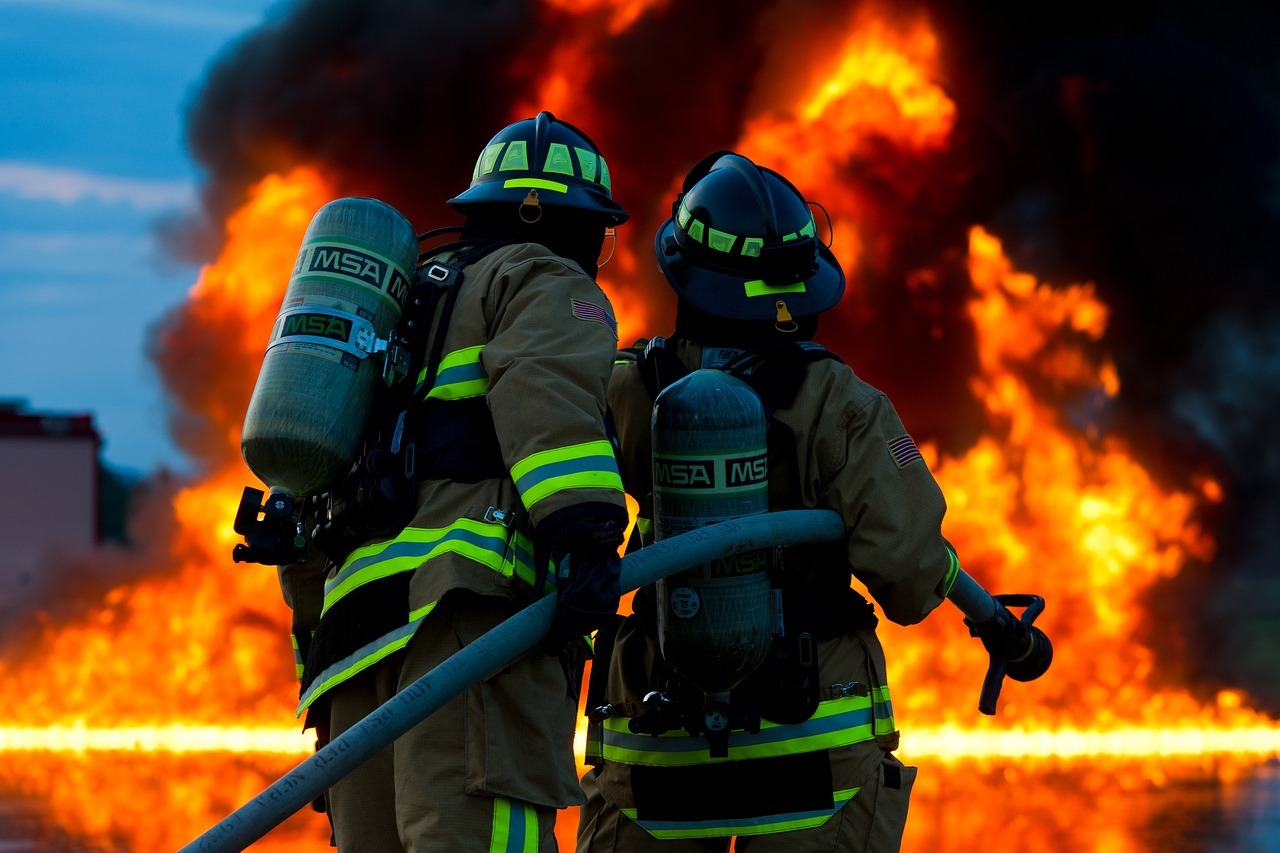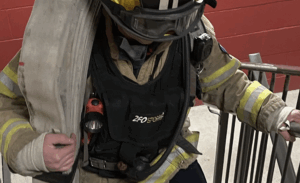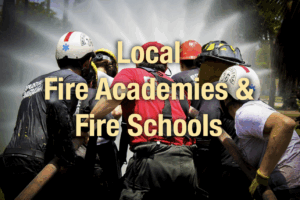Discover how advancing your education can be the key to securing your dream firefighter job.
Reasons to Read the Article:
- Increased Qualifications: Learn how furthering your education enhances your qualifications and makes you a more competitive candidate in firefighting.
- Diverse Education Paths: Explore various education options and strategies to overcome financial barriers and achieve your goal of becoming a firefighter.
Table of Contents
Furthering Your Education to Secure Your Firfighter Job
You may not technically need a post-high school education to get a job in the fire service, but advanced schooling is one of the great equalizers.
Regardless of race, gender, or social class, an advanced education allows you to better yourself, learn new skills, improve your chances of getting hired in the fire service, and open doors to other opportunities.
Conversely, a lack of education can deprive you of standing out against the competition or better job opportunities elsewhere.
Do Fire Departments value an advanced education?
There is no doubt that fire departments place a high value on education. Hiring authorities will look for evidence of mental aptitude during the assessment process. Candidates with an advanced education often score higher on the written test and will stand out to recruiters.
Firefighters with higher education are more likely to get promoted within the organization. A growing trend in the fire service is to require an associate degree for mid-management positions like fire captain and a bachelor’s degree for chief officers.
A higher education in a specialized field like paramedics, hazardous materials, and advanced technical rescue may also open opportunities within a department.
To stand out, aspiring firefighters can seek a higher education by enrolling in an academic program, completing a certification, or getting a related degree in fire science or fire service administration.
Note: A bachelor’s degree in fire science or fire service administration DOES NOT automatically qualify you for the job. You’ll still need to meet the department’s requirements and pass the firefighter exam.
If you are interested in learning more about firefighter job requirements and preferences go to my blog titled: Firefighter Hiring Requirements and Preferences Explained
Find a Fire Department Near You
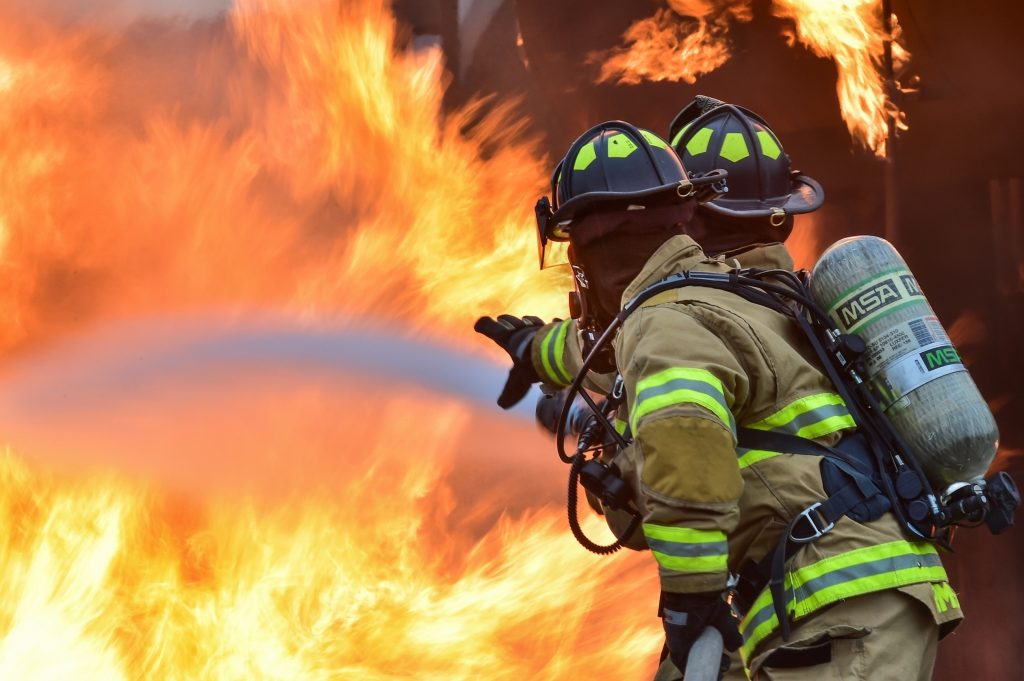
The three “most valued” types of education to Secure Your Firefighter Job are:
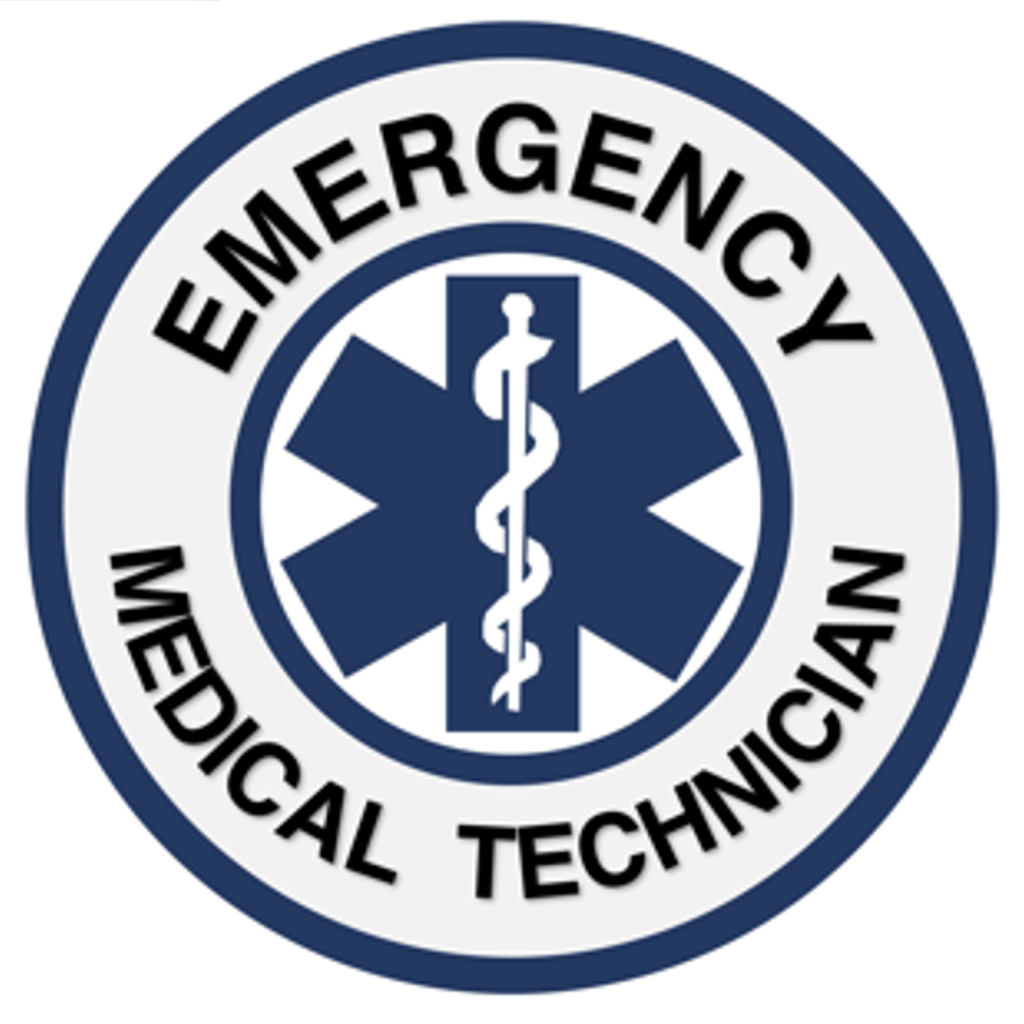
EMT – If you know you want a firefighting career and are considering getting further education, your priority should be getting an EMT certification. It is the most required certification and will make you a robust and viable candidate for most fire departments. Almost every firefighter is, at the very least, EMT certified. The good news is that EMT certification is relatively easy to attain.
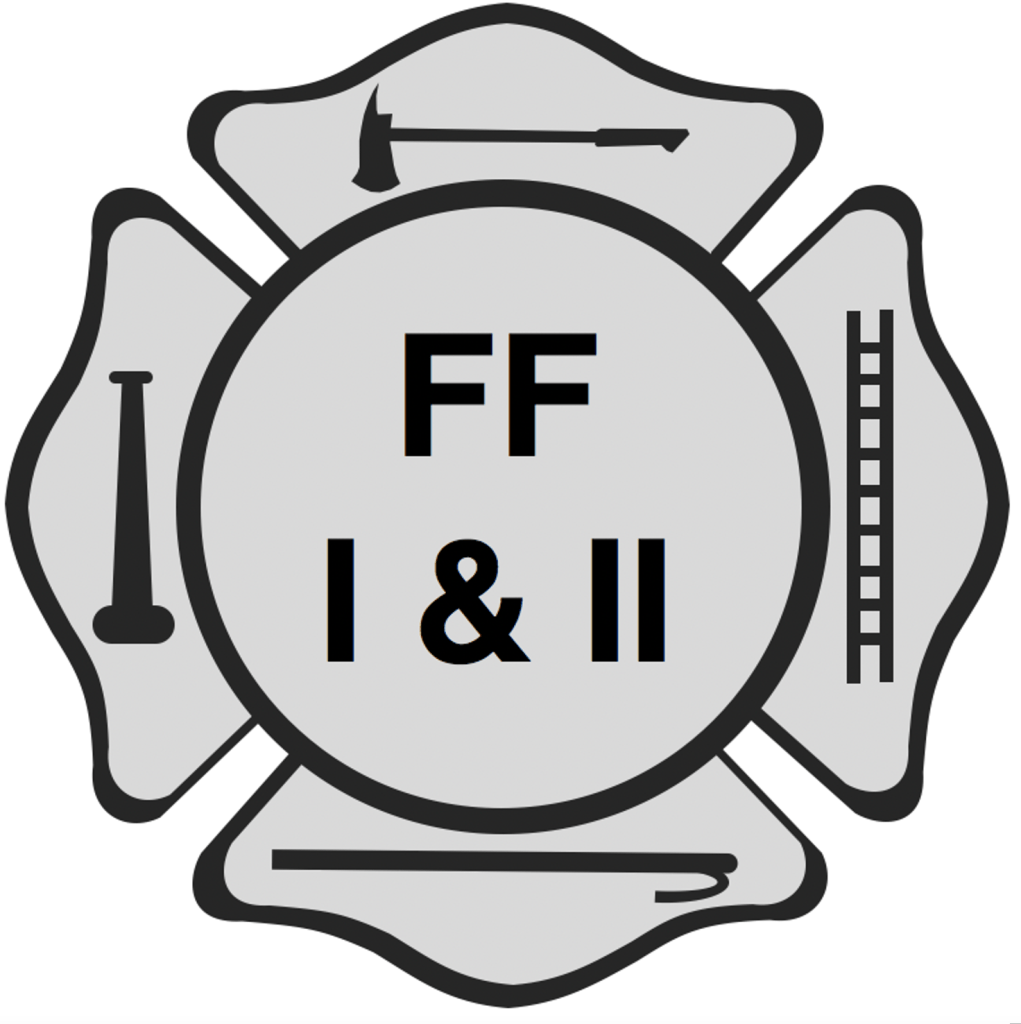
Firefighter I & II – Almost every professional firefighter is Firefighter I & II certified either before being hired – or, more commonly, after employment. Some of the smaller city departments require this certification, which is not difficult to attain.
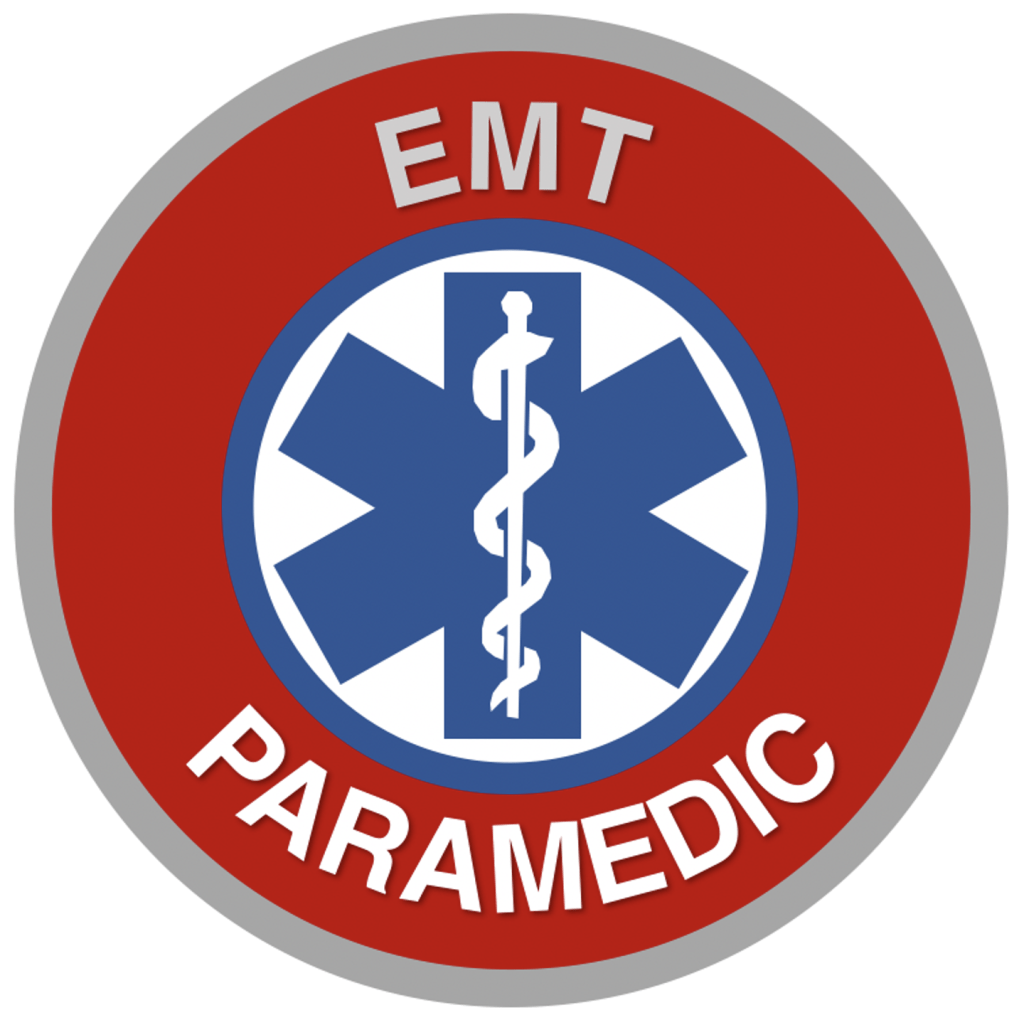
Paramedic-EMT – or Firefighter certifications will, without a doubt, make you stand out in the hiring process with a city fire department. But a paramedic certification is even more noteworthy to a fire department that offers emergency medical services (EMS), including advanced life support (ALS) – medic companies.
Certified paramedics are the most sought-after candidates by the hiring authority with an EMS division. It is, however, the most difficult of the top three certifications to attain, and some fire departments don’t run the EMS program for their city and subsequently don’t need paramedics.
In large cities, being a paramedic would rarely be a requirement. That’s because requiring a candidate to be a certified paramedic would likely challenge a city’s EEO (equal employment opportunity) regulation. Less privileged community members might find it harder to achieve this certification.
However, a candidate who passes the firefighter entrance exam high enough to be considered might find that being a paramedic is their golden ticket. Remember, it is costly for a department to send current employees to school. A candidate with this certification may stand out against their competition and look more appealing to the hiring authority.
If you are interested in learning more about specialized firefighter careers go to my blog titled: Unlocking Specialized Firefighter Career Paths
Charting Firefighter Job Certifications By Department Size
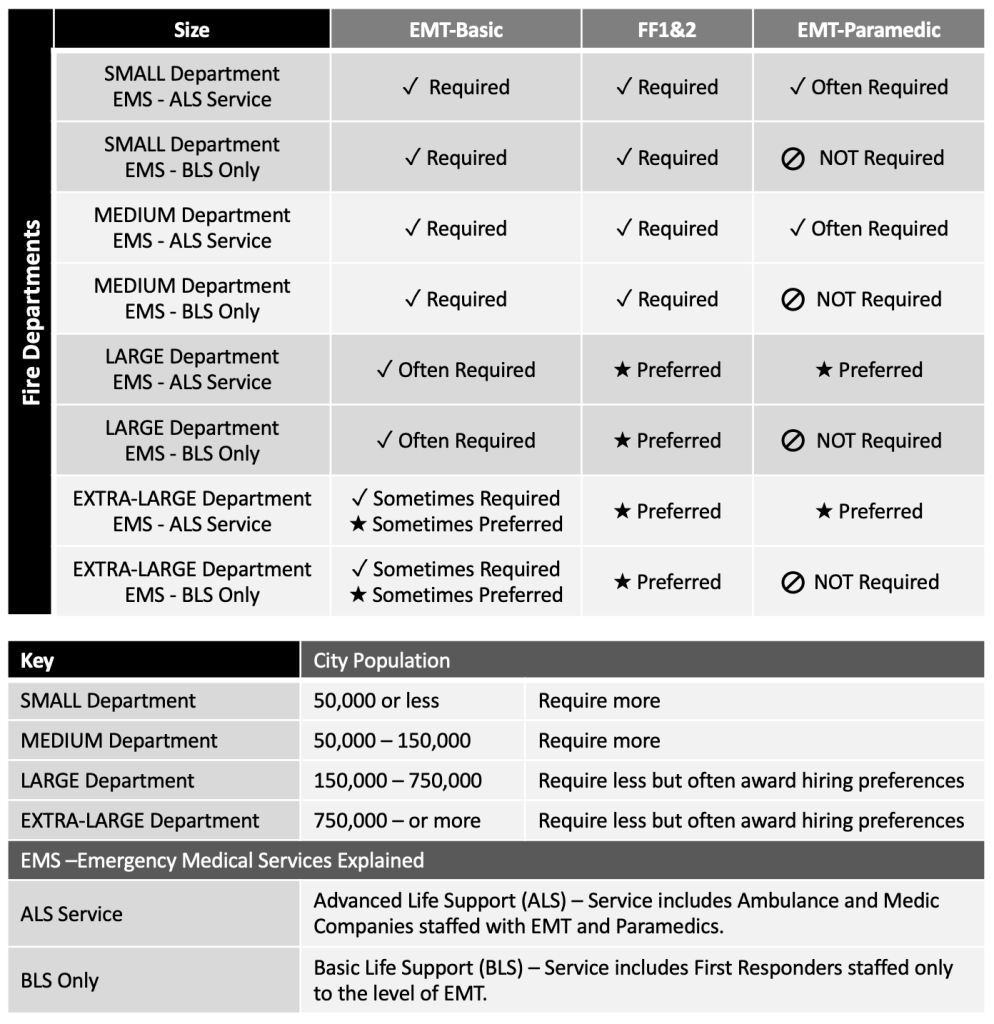
Certification is not required if a department shows the “★ Preferred” in the chart. However, you could be given an advantage during the hiring process for having it.
After studying this chart, I hope you have a clearer understanding of how important it is to know the standard firefighter job certification requirements. Meeting a department’s needs is the first step toward becoming a viable candidate.
EMT, Firefighter I and II, and Paramedic Course Overview
Emergency Medical Technician (EMT) Course Overview
The Emergency Medical Technician (EMT) course is a comprehensive training program designed to equip individuals with the essential skills and knowledge to provide immediate medical care in emergencies.
EMTs are often the first responders at the scene of accidents, medical emergencies, and disasters, playing a critical role in stabilizing patients before they reach a medical facility. The course covers a range of medical techniques, protocols, and assessments to ensure that EMTs can deliver effective and efficient care during critical moments.
Course Highlights
- Medical Basics
- Patient Assessment
- Life Support Techniques
- Trauma Care
- Medical Emergencies
- Emergency Medications
- Medical Equipment
- Communication Skills
- Ethical and Legal Considerations
- Practical Training
- Certification
The EMT course is a vital steppingstone for those seeking to enter the emergency medical services field. Through theoretical learning and hands-on practice, participants acquire the skills necessary to provide immediate and effective care, making a significant difference in the lives of those in need during critical moments.
Firefighter 1 and 2 Course Overview
The Firefighter 1 and 2 course is a comprehensive training program designed to prepare individuals for a firefighter’s challenging and demanding role. Divided into two levels, this course equips participants with the foundational and advanced skills necessary to respond to fire-related emergencies effectively. From firefighting techniques to rescue operations, Firefighter 1 and 2 training provides a solid basis to those aiming to serve their communities as skilled and capable firefighters.
Course Highlights
- Fire Science Fundamentals
- Personal Protective Equipment (PPE)
- Firefighting Techniques
- Search and Rescue
- Emergency Medical Services (EMS)
- Hazardous Materials Awareness
- Rope and Knot Techniques
- Fire Apparatus Operation
- Fire Prevention and Safety
- Teamwork and Communication
- Live Fire Exercises:
- Certification
The Firefighter 1 and 2 course is a rigorous program that equips individuals with the skills, knowledge, and confidence needed to respond to fires and emergencies. By covering a broad range of topics from fire behavior to rescue techniques, this training lays the foundation for firefighters to carry out their duties effectively, safeguarding lives and property while upholding the highest standards of professionalism and service.
EMT – Paramedic Course Overview
The paramedic course is an advanced training program designed to prepare individuals for the critical role of a paramedic, who provides advanced life support and medical interventions in emergencies. This comprehensive course equips participants with the knowledge and skills to assess patients, administer medications, perform advanced medical procedures, and manage complex medical cases, making them an integral part of the pre-hospital healthcare team.
Course Highlights
- Advanced Medical Knowledge
- Emergency Interventions
- Cardiac Life Support
- Trauma Management
- Pediatric Care
- Obstetric and Gynecological Care
- Medical Equipment
- Emergency Medical Services (EMS) Operations
- Interdisciplinary Collaboration
- Field Experience
- Ethics and Legal Considerations
- Certification and Licensure
The paramedic course represents the pinnacle of pre-hospital medical training, equipping individuals with the expertise to provide advanced medical care in high-pressure situations. From cardiac emergencies to trauma management, paramedics are trained to deliver life-saving interventions that can significantly impact patient outcomes. This comprehensive training prepares them to excel as vital healthcare team members, providing critical care when every second counts.
Should You Seek Firefighter Job Certifications Before Applying?
Perhaps.
Becoming a firefighter is a challenging and rewarding journey that demands passion, determination, and the right qualifications. While formal education is essential, certifications hold a special place in the firefighter hiring process. Explore why aspiring firefighter candidates should seek certifications before applying for a job.
Demonstrated Commitment
Obtaining certifications in fields related to firefighting demonstrates your commitment to the profession. Fire departments value candidates who have invested time and effort in acquiring knowledge and skills before applying. Certifications showcase your dedication and set you apart from other applicants.
Enhanced Knowledge and Skills
Firefighter job certifications provide you with the opportunity to gain specialized knowledge and practical skills. These certifications cover many subjects, including firefighting techniques, emergency medical services (EMS), and handling hazardous materials. The expertise gained through credentials equips you with the tools needed to excel in firefighting scenarios.
Competitive Edge
The firefighting profession is highly competitive, with numerous applicants vying for limited positions. Holding firefighter job certifications can give you a significant competitive edge. It demonstrates to hiring authorities that you are well-prepared and have a solid foundation of knowledge and skills, making you a more attractive candidate.
Faster Integration
Fire departments often need more time to train recruits. Having certifications relevant to firefighting can expedite your integration into the team. Departments may view you as a candidate requiring less initial training, allowing you to become a productive firefighter quickly.
Confidence Boost
Certifications not only provide practical skills but also boost your confidence. Knowing you have completed rigorous training and passed exams in firefighting-related subjects can give you the self-assurance to excel during interviews and assessments.
Networking Opportunities
Certification programs often provide opportunities to network with experienced firefighters and industry professionals. Building these connections can be invaluable as you progress in your career. You can gain insights, mentorship, and job referrals through these networks.
Adapting to Evolving Standards
The firefighting profession evolves with new techniques, technologies, and safety standards. Many certifications require ongoing education and recertification, ensuring you stay current with the latest advancements. Fire departments highly regard this commitment to learning and improvement.
Prerequisites for Some Positions
Some firefighter job positions may require specific certifications as prerequisites. For example, you’ll need EMS certifications to work as a paramedic firefighter. By obtaining relevant certifications early in your career, you expand your opportunities for different roles within the fire service.
Seeking certifications before applying for a firefighter job is a strategic move that can significantly enhance your prospects. Certifications demonstrate your commitment, knowledge, and skills, setting you apart in a competitive field. They make you a more attractive candidate and contribute to your self-assurance and readiness for the firefighting challenges. Investing in certifications is an investment in your future as a firefighter.
Points? If the city you want to work for requires or gives preferential hiring (points) to candidates certified as an EMT, Firefighter I & II, or paramedic, you should consider enrolling in a program. Doing so may improve your chances of getting a job offer or success in the recruit academy.
If you already have any certifications, ensure they meet the hiring authorities’ requirements and stay current. You will have to provide proof during the open application period.
If you are interested in learning more about firefighter job requirements and preferences go to my blog titled: preferential hiring (points)
Affordable Education Alternatives
A career as a firefighter is a calling for many, driven by the desire to serve and protect their communities. However, the cost of education and training can sometimes pose a financial barrier for aspiring firefighter candidates. The good news is that there are affordable alternatives to further your education and pursue your dream of becoming a firefighter. In this article, we’ll explore various options for those who cannot afford traditional education.
- Community College Programs
Community colleges often offer affordable firefighting and emergency services programs. These programs provide comprehensive training in firefighting techniques, emergency medical services (EMS), and related skills. The tuition fees at community colleges are generally lower than at four-year institutions, making this an accessible option for many aspiring firefighters.
- Online Courses and Certifications
The digital age has opened numerous opportunities for online learning. Many accredited institutions and organizations offer online courses and certifications in firefighting and related fields. These courses are often more affordable than traditional in-person programs and allow you to study at your own pace while working or managing other responsibilities.
- Volunteer Firefighting
Consider volunteering at your local fire department. Many fire departments have volunteer programs that provide you with free training and hands-on experience. Volunteering allows you to learn the ropes and demonstrates your commitment to the profession, which can enhance your resume when applying for paid positions.
- Scholarships and Grants
Explore scholarships and grants specifically designed for aspiring firefighters. Various organizations, both public and private, offer financial assistance to individuals pursuing firefighting careers. Research and apply for these opportunities to help cover education and training costs.
- Apprenticeships and On-the-Job Training
Some fire departments offer apprenticeship programs or on-the-job training opportunities. These programs allow you to earn while you learn, gaining valuable experience and skills without the burden of tuition fees. Check with local departments to see if such programs are available in your area.
- Financial Aid and FAFSA
If you plan to attend a college or vocational school, consider applying for federal financial aid through the Free Application for Federal Student Aid (FAFSA). This can help offset tuition costs, and you may be eligible for grants or low-interest loans.
Access to a post-high school education can be financially challenging for many. To help offset the rising cost, awards in federal financial aid, merit-based scholarships, and tuition tax credits are available – supporting many who might otherwise not have been able to afford a higher education. Fill out your Free Application for Federal Student Aid (FAFSA) today to see what financial support you may be eligible for.3
- Work-Study Programs
Some educational institutions offer work-study programs that allow students to work part-time while pursuing their education. These positions often align with your field of study and can provide valuable experience.
- Employer-Sponsored Training
If you’re currently employed, inquire with your employer about any sponsored training or education assistance opportunities. Some employers may support employees in their pursuit of firefighting careers.
The path to a firefighter career is more complicated than those with substantial financial resources. By exploring these affordable education alternatives, you can make your dream of becoming a firefighter a reality. Whether through community college programs, online courses, volunteer work, scholarships, or employer support, options can help you gain the necessary knowledge and skills to serve your community as a firefighter. Remember that determination, commitment, and resourcefulness are vital to overcoming financial barriers and achieving your firefighting goals.
When Times are Tough – Certifications Help

Some city fire departments may experience budget cuts or hiring freezes during a city funding crisis. However, the fire department still needs to replace firefighters when staffing levels get low due to retirements.
In that situation, departments often utilize a lateral transfer provision and accept applications from current firefighters, volunteer firefighters, and those with certifications (Firefighter I and II, EMT, and paramedic). This provision allows a department to avoid the high costs of holding a city-wide entrance exam. The “already qualified” candidates must go through a shortened, less costly academy.
This scenario is an opportune time for an experienced firefighter, or one with EMT/paramedic certifications, to move from a minor fire department to a larger one – and bypass the crowded entrance exam process. Check to see if this provision is available at your target fire department.
To learn more about firefighter job hiring preferences go to my blog titled: Firefighter Hiring Requirements and Preferences Explained
Take Advantage of Requirements, Preferences and Certifications
If you meet requirements, qualify for a preference, or have any certifications, get credit for them. You MUST report your qualification at the right time in the process – and have the proper documentation.
This is crucial.
- The hiring authority actively seeks ways to eliminate candidates from their long lists. Don’t make a mistake here.
- Follow instructions accurately to avoid missing out.
- If you make any mistakes when reporting, you cannot go back and “fix it.” Your preference points will not be applied retroactively.
Reference
- Federal Student Aid, An Office of the U.S. Department of Education. Free Application for Federal Student Aid (FAFSA). https://studentaid.gov/ (07/08/21 Accessed.)
Learn How You Can Become A Firefighter
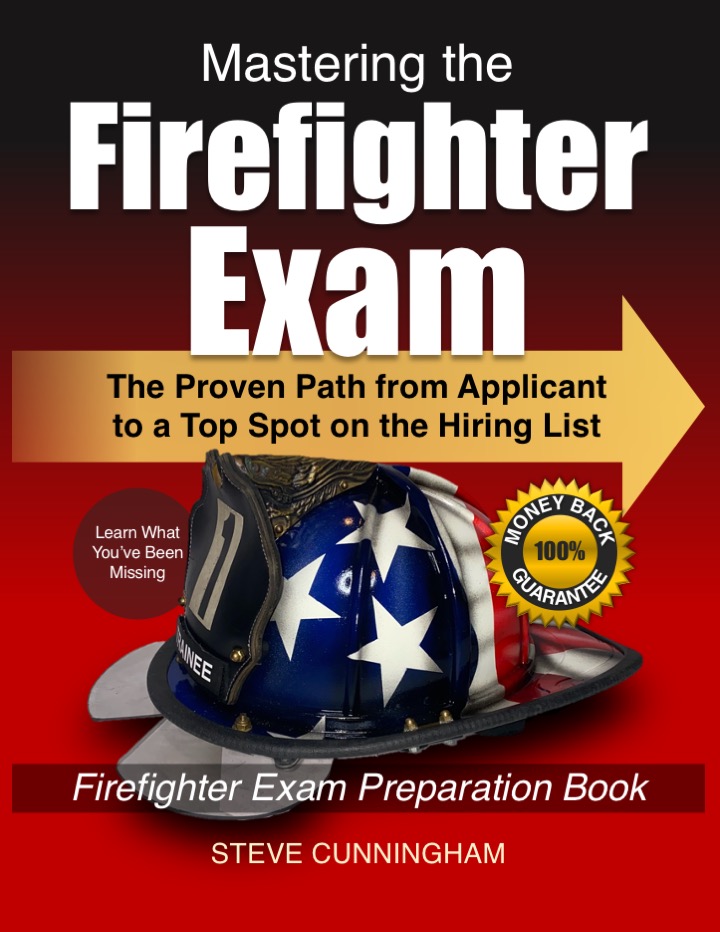
Mastering the Firefighter Exam is a complete guide on how to pass the firefighter exam with a top score. It simplifies the complicated hiring practices of big city fire departments and reveals insider information most candidates don’t know about.
If You Would Like To Know How To Get A Head Of Your Competition, This Book Is For You.

